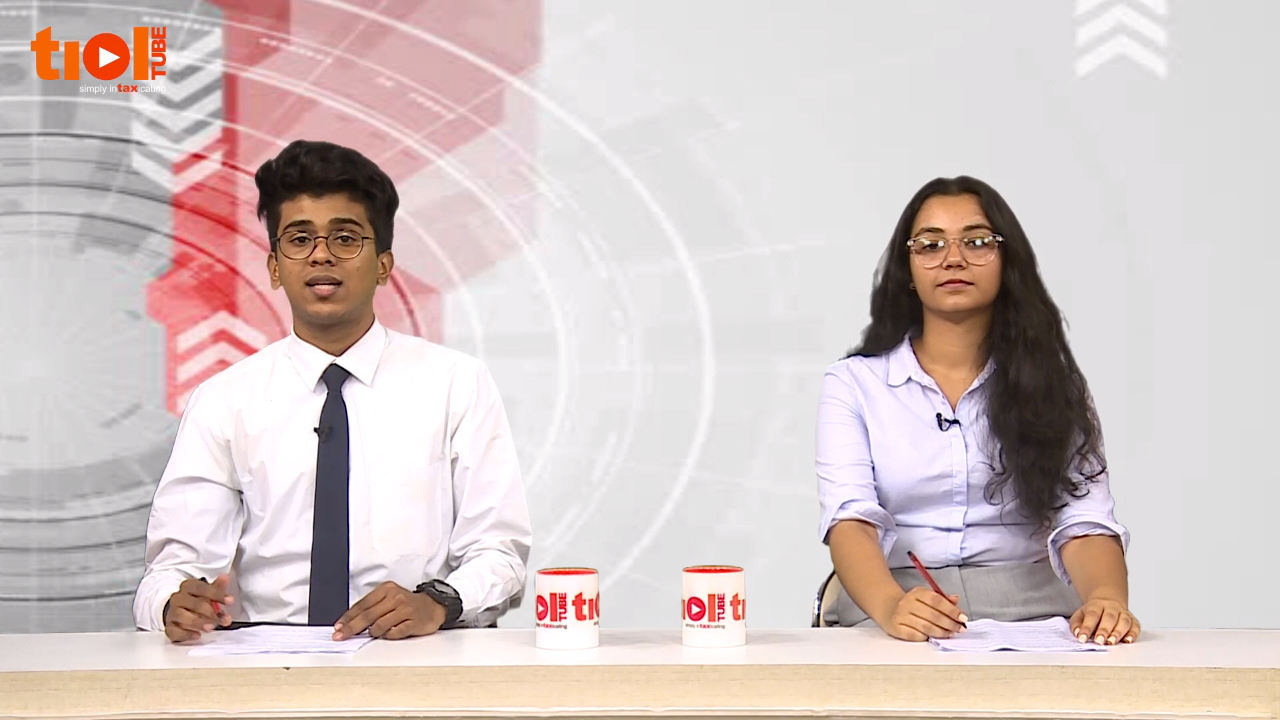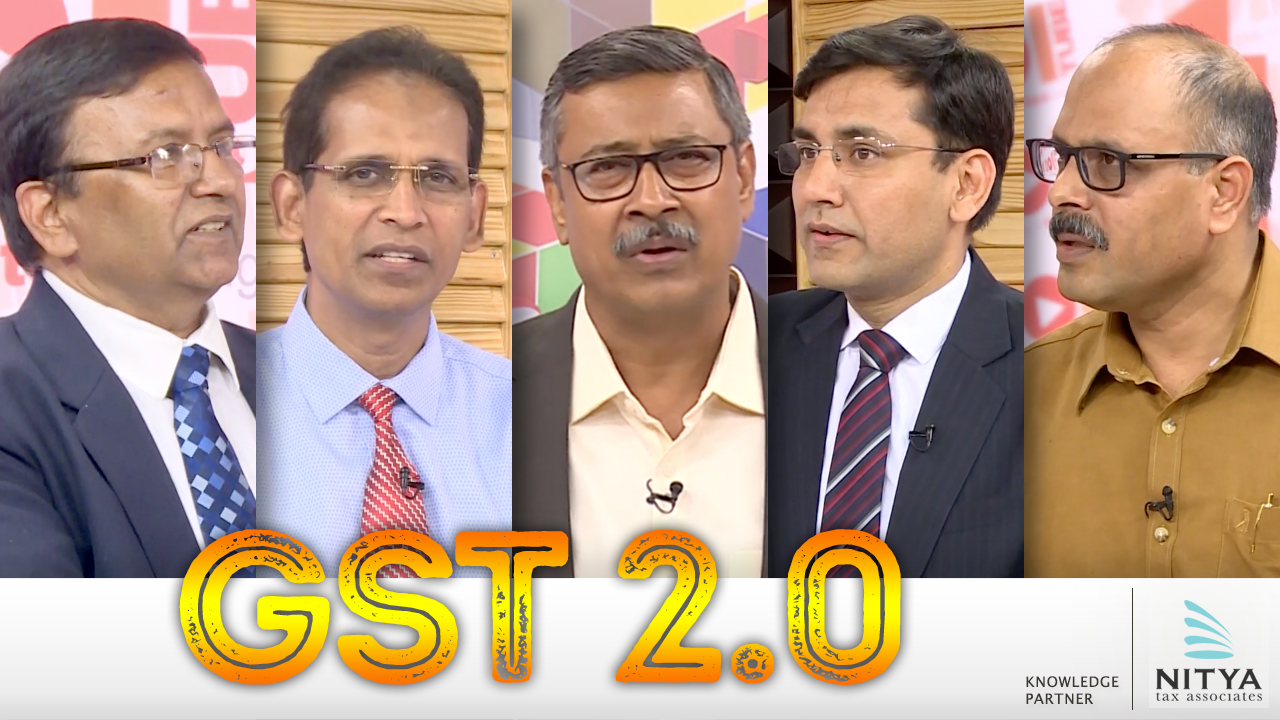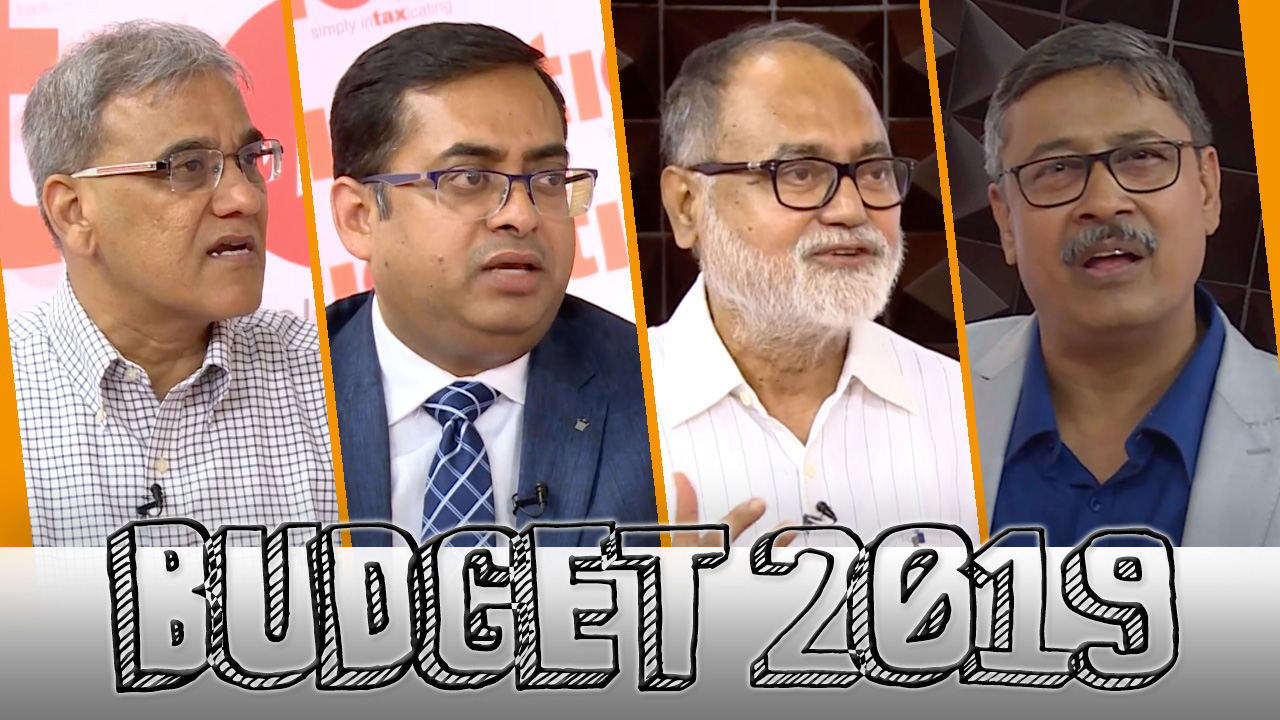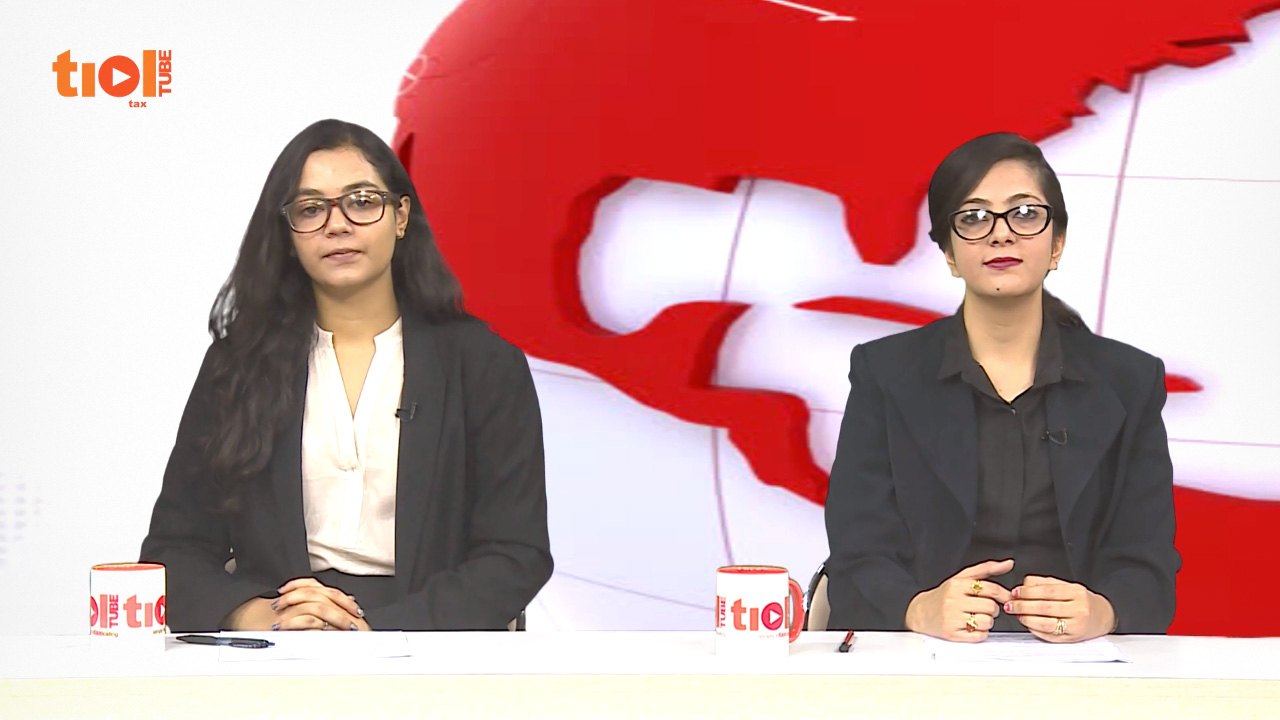|
SERVICE TAX
2019-TIOL-1370-HC-MUM-ST CGST & CE Vs GTL Infrastructure Ltd
ST - Question involved is whether the respondent is entitled to discharge its service tax liability on reverse charge basis under section 66A of the Finance Act 1994 by utilizing Cenvat Credit available to it of the duty paid on capital goods purchased - Tribunal by order dated 01/08/2016 dismissed the Revenue Appeal by inter alia placing reliance upon Rule 3(4) of the CCR, 2004 to hold that it authorizes utilization of Cenvat Credit for payment of service tax - Counsel for Revenue Revenue states that the decision of the Mumbai bench of the Tribunal on the same issue in HDFC Standard Life Insurance Co. Ltd., - 2014-TIOL-1405-CESTAT-MUM and Aquapharma Chemicals Private Limited - 2015-TIOL-2776-CESTAT-MUM , holding in favour of the respondent have been accepted by the Revenue - on the above ground itself, the present appeal is liable to be dismissed as there is no justification pointed out in filing this appeal against the impugned order when the same has been accepted earlier by the Revenue - in any case, the issue now stands concluded against the Revenue by the decisions of the Gujarat High Court in the case of Commissioner of C. Ex. & Customs V/s Panchmahal Steel Ltd., - 2015-TIOL-25-HC-AHM-ST , Punjab and Haryana High Court in the case of Commissioner of C.Ex., Chandigarh V/s Nahar Industrial Enterprises Ltd - 2010-TIOL-868-HC-P&H-ST and Delhi High Court in the case of Commissioner of Service Tax V/s Hero Honda Motors Ltd., - 2012-TIOL-1104-HC-DEL-ST - as the issue stands concluded by the above decisions, the questions as proposed do not give rise to any substantial question of law - Revenue appeal not entertained, hence dismissed: HC [para 5 to 8]
-Appeal dismissed : BOMBAY HIGH COURT
2019-TIOL-1369-HC-MUM-ST
Savani Construction Company Vs UoI
ST - Prayer of the petitioner to condone the delay of 387 days in filing the appeal against order dated 30.11.2016 passed by the Commissioner(A) was dismissed by the CESTAT, therefore, Writ petition file - Tribunal had noted that the partner of the firm had expired 8 years prior to the presentation of the application for condonation of delay and the petitioner No.2 was 64 years of age; that there was no sufficient cause for condonation of delay of more than one year when the order in appeal was communicated to the petitioner No.2 on 30th November 2016.
Held: It is true that the Court is expected to lean in favour of condonation of delay so that the lis is determined on merits - Courts and Tribunal generally adopt a liberal approach and the expression, 'sufficient cause' is construed rather generously so as to advance substantial justice, however, the cause ascribed by a litigant must relate to the events which transpired in proximity to the passing of the order sought to be assailed - In the case at hand, the principal reason assigned for not filing the appeal is the death of one of the Partners of the petitioner No.1 firm - The said event occurred in the year 2010 - The death of the partner of the petitioner No.1 occurred even before passing of the order in original - Since the order sought to be impugned before the Tribunal was passed on 30th November 2016, the Tribunal was justified in refusing to condone the delay on account of a cause which had no causal connection with the period in question - If the said cause is discounted, then it seems to be a case of no specific and bonafide explanation relatable to the period of delay - The material on record, on the contrary, indicates that the petitioners have not been diligent in pursuing the remedies as the delay occurred in preferring the appeal against the order in original before the Commissioner (Appeals) and also in assailing the order passed by the Commissioner (Appeals) before the Tribunal - Bench is persuaded to hold that the impugned order cannot be said to be either perverse or unreasonable so as to warrant interference in exercise of extraordinary jurisdiction under Article 226 and 227 of the Constitution of India - Petition is, therefore, rejected: High Court [para 6 to 10]
-Petition rejected : BOMBAY HIGH COURT 2019-TIOL-1861-CESTAT-AHM
Linde Engineering India Pvt Ltd Vs CCE & ST
ST - The issue involved is eligibility of cenvat credit in respect of services namely, outdoor catering service, accommodation service and parking service - The lower authority has made an error that the entire credit or Rs. 4,22,891/- is relates to outdoor catering whereas as per facts submitted by assessee only an amount of 74,762/- is related to outdoor catering and remaining amount of Rs. 3,48,130/- is relates to event management - As regard, event management charges, it is held time and again in various judgments that credit is admissible - Since the event management is organized in relation to overall business of company which is the input service hence, credit is admissible - As regard outdoor catering, since the outdoor catering service is used for consumption of food by employees which falls under exclusion category hence the credit of Rs. 74,762/- is not admissible to the assessee - Regarding the accommodation service, entire service is bifurcated into various services - Relevant documents have not been submitted to the lower authority, therefore, the matter relates to the accommodation is remitted back to the adjudicating authority - The assessee shall submit all the documentary evidences and the adjudicating authority shall pass a fresh order after verifying the same - As regard car parking, since it is a part of maintaining the assessee's office, is directly used for overall business of assessee, accordingly, the car parking service is an admissible input service and credit is allowed - As regard penalty relates to outdoor catering service, since the issue involved is of interpretational in nature, there is no malafide intention on the part of assessee - Therefore penalty corresponding to the cenvat credit of Rs. 74,762/- on outdoor catering is set aside: CESTAT
- Appeal partly allowed: AHMEDABAD CESTAT
2019-TIOL-1860-CESTAT-ALL
Rockwell Automation India Pvt Ltd Vs CCE
ST - The assessee is engaged in manufacture of automation machineries including programmable logic controller - They entered into contracts with their customers where the spares are supplied by assessee and kept under the custody and control of customer in customers' premises for being used immediately when needed for repair and maintenance of machinery in premises of the customers - In addition to manufacture, assessee is also providing service under 'management, maintenance or repair service' and to facilitate the said service such inventory of spares is maintained by assessee in premises of customer - On scrutiny of transactions it appeared to Revenue that assessee was not paying Service Tax involved in transactions where the invoices raised by assessee mentioned "hire charges" - It appeared to Revenue that said hiring charges were consideration for providing 'repair and maintenance service' - Therefore proceedings were initiated through issue of SCN demanding Service Tax with proposals for penalties and a proposal for personal penalty on Shri M.S.Sheshadri, Director of the company - It was submitted before original authority that said consideration on which Service Tax was demanded was subjected to sales tax and original authority has not relied upon any evidence to establish that the said contention was unfounded - Further, the invoices which were available on record clearly indicated that the entire transactions in such invoices was subjected to sales tax - The impugned orders are not sustainable: CESTAT
-Appeals allowed: ALLAHABAD CESTAT
2019-TIOL-1859-CESTAT-MUM
Star India Pvt Ltd Vs CST
ST - SCN has been issued to assessee demanding service tax and for denial of inadmissible cenvat credit - The dispute is in a very narrow compass of demand of interest under Rule 14 of CCR, 2004 r/w Section 75 of FA, 1994 in respect of credit on which demand has been dropped - Since the demand for excess utilization of cenvat credit is set aside subject to confirmation of another demand, no merits found in the order of Commissioner demanding the interest in respect of the amount so dropped - In fact there is no such provision in law - It is not even the case that the demand was confirmed and amount already deposited has been appropriated against such demand - Once the adjudicating authority has rendered a finding that the demand cannot be sustained, the demand for interest automatically cannot be made: CESTAT
-Appeal allowed: MUMBAI CESTAT
CENTRAL EXCISE
2019-TIOL-1368-HC-MUM-CX
Trend Electronics Ltd Vs CCE & CC
CX - None appears for the appellants or the respondents - Bench is further informed that the Advocate on record for the respondents is no longer practicing in the Bombay High Court - The respondents themselves are placed in Aurangabad and have not made any arrangements to have themselves represented before the court in these appeals - Bench has in the case of Dixon Cargo Consolidators Pvt. Ltd. - 2018-TIOL-2208-HC-MUM-CUS taken a view that the appeals would be filed and entertained before that Bench of the High Court where the original cause of action arose - Since the orders in original were passed by the Asst. Commissioner of Central Excise, Aurangabad, Registry is directed to transfer the papers and proceedings relating to these appeals, to the Aurangabad Bench of the High Court, which would decide these appeals: HC [para 2, 3]
-Appeal disposed : BOMBAY HIGH COURT
2019-TIOL-1367-HC-MUM-CX
CGST & CE Vs Godrej And Boyce Manufacturing Company Ltd
CX - Tribunal was justified in holding that the Cenvat Credit availed on manufacturing activity can be utilised for discharging the Service tax liability on "Goods Transport Agency" under reverse charge mechanism - decisions in Hero Honda Motors Ltd. - 2012-TIOL-1104-HC-DEL-ST and CC Vs. Nahar Industrial Enterprises Ltd. - 2010-TIOL-868-HC-P&H-ST apply to the present case - question of law as proposed does not give rise to any substantial question of law, thus, not entertained: HC [para 3]
CX - Limitation - Revenue was aware that the respondent was taking the merged credit in 2004, in view of intimation dtd.19/01/2005 - Thus, the Tribunal held that the showcause notice is time barred - decision of the Tribunal is one on facts and nothing has been shown to indicate that the same is perverse - Therefore, the question No. (ii) as proposed viz. Whether under the facts and circumstance of the case and in law, the Tribunal was right in holding the demand of the revenue as time barred, does not give rise to any substantial question of law, thus, not entertained - Revenue Appeal dismissed: HC [para 4]
-Appeal dismissed : BOMBAY HIGH COURT 2019-TIOL-1858-CESTAT-MUM
Hindustan Petroleum Corporation Ltd Vs CCE
CX - The assessee is a PSU which manufactures & markets various Petroleum products including LPG - Pursuant to Audit conducted by the Revenue, a mis-match was observed between the production figure of LPG shown in ER-1 returns & financial report for the relevant FY - SCNs were issued proposing duty demand with interest & equivalent penalty, alleging clandestine removal - On adjudication, the demand was confirmed - On appeal, the Commr.(A) sustained the same - Hence the present appeal.
Held: The SCN does not mention any explanations having been offered by the assessee - In relevant portions of the O-i-O, the adjudicating authority observed that some quantity of LPG was captively consumed, but the same was disbelieved due to non-maintenance of proper records for which it was held that clandestine removal had occurred & the same need not be proven - Such findings run contrary to the judgment laid down in several cases, which hold that any allegation of clandestine removal is to be established beyond reasonable doubt - Hence both the O-i-O as well as the O-i-A merit being quashed: CESTAT
-Assessee's appeal allowed: MUMBAI CESTAT
2019-TIOL-1857-CESTAT-ALL
ITC Ltd Vs CCE & ST
CX - The assessee is engaged in manufacture of cigarettes and cut tobacco - During audit, it was observed that assessee was availing the credit of service tax paid against two types of Input Service Distributor (ISD) invoices i.e. invoices issued from ITC Ltd., India Tobacco Division (Head Office), Kolkata and invoices issued from ITC Ltd., Agri Business Division (ILTD), Guntur - It appeared to revenue that ILTD does not qualify as an input service distributor as per Rule 2 (m) of CCR, 2004 - Therefore, the service tax credit availed by assessee on the ISD invoices issued by ILTD is not admissible as per law - The instant issue is covered by decision of Tribunal in case of ITC Ltd. - 2016-TIOL-2440-CESTAT-BANG wherein it was held that ILTD is qualified as an input service distributor and the service tax paid for the input services by ILTD, Guntur and distributed as ISD to the ITC Ltd., Bangalore is rightly admissible - By following the said judicial discipline, impugned orders are set aside: CESTAT
-Appeals allowed: ALLAHABAD CESTAT
2019-TIOL-1856-CESTAT-DEL
Bridgestone India Pvt Ltd Vs CGST & CE
CX - The assessee-company manufactures tyres & tubes for cars, trucks and bus falling under sub-heading 4011.90 and 4013.90 of the CETA 1985 - In the course of business, the assessee sells tyres to the Original Equipment Manufacturers and the replacement market - In the latter format, the assessee offers discounts and incentives to dealers for being its elite dealers - The percentage of discount for which a dealer is eligible, is calculated on quarterly basis and the report is prepared specifying the same - The assessee filed an application seeking provisional assessment u/r 7 of the CER 2002 - Such application was rejected on grounds that Excise duty can be paid on Normal Transaction Value u/r 7 of the CE Valuation Rules 2000 and that the assessee could file a refund claim u/s 11B upon expiry of the scheme - The assessee then filed 13 refund claims for the relevant periods - Though rejected initially, the Commr.(A) later quantified the amount available for refund and granted the same to the assessee - The Revenue then filed an appeal against such O-i-A, which was allowed on grounds that the Commr.(A) should have remanded the matter to the authorities concerned, rather than examining the matter personally - On remand, the adjudicating authority sanctioned the refund & such findings were not challenged by the Revenue - Thereafter, the assessee was served an SCN seeking recovery of amount erroneously refunded - Later, the adjudicating authority held that such refund could not be allowed to the assessee as the same would lead to unjust enrichment - Hence duty demand was raised with interest & penalty u/s 11AC(1)(c) - Hence the present appeal by the assessee.
Held: In the present case, there was no direction to the adjudicating authority to file an appeal - No appeal was filed - Hence the order passed by the Adjudicating Authority u/s 11B granting refund of duty attained finality - While Section 11A does provide for recovery of duties erroneously refunded, but since the duties had been refunded pursuant to orders passed by the adjudicating authority u/s 11B, it is not possible to hold that the powers u/s 11A can yet be exercised for refund of the amount since the same do not classify as duty erroneosly refunded - The Principal Commissioner of Central Excise is vested with power to examine legality of any order passed by the Adjudicating Authority and if this power is not revoked, it is not open for the Department to apply the provisions of Section 11A - Hence the SCN seeking recovery of refund could not have been issued - As the same lacks jurisdiction, it merits being set aside: CESTAT
-Assessee's appeal allowed: NEW DELHI CESTAT
CUSTOMS
2019-TIOL-1371-HC-MUM-CUS
Jindal Drugs Ltd Vs UoI
Cus - Issue involved is whether the interest on delayed refund u/s 27A of the Customs Act is payable on expiry of period of three months from the date of receipt of refund application or whether interest is payable from the date on which the order for refund is actually made or confirmed.
Held: Provisions u/s 11BB of the CEA and Section 27A of the Customs Act are pari materia and, therefore, interpretation put on the provisions of Section 11BB of the CEA will equally apply to the interpretation of provisions of Section 27A - issue involved in this petition is entirely covered by the decision of Apex Court in Ranbaxy Laboratories Ltd. - 2011-TIOL-105-SC-CX where in the context of provisions of Section 11BB of the CEA, the Apex Court has held that manifestly, interest u/s 11BB of the Central Excise Act becomes payable, if on an expiry of a period of three months from the date of receipt of the application for refund, the amount claimed is still not refunded - Bench finds no justification whatsoever on the part of the respondents for denying the petitioners interest on delayed refund amount for the period between 11th January 2008 i.e., three months after the expiry of receipt of refund applications dated 10th October 2007 till the date of actual refund i.e., 16th August 2017 - Since the impugned order has failed to grant such interest, the same warrants interference - respondents are directed to pay interest to the petitioner on refund amount for the period between 11th January 2008 to 4th December 2016, since the interest on refund amount for the later period has already been awarded by the impugned orders - Court also directs that the interest amount in terms of this order be computed and paid to the petitioners, as expeditiously as possible and in no case later than two months: HC [para 8, 9, 11, 13, 15, 16]
Cus - If the petitioners were to be relegated to avail alternate remedy, then, serious prejudice would ensue to the petitioners, since the Customs Act 1962 does not contemplate award of any interest on the interest component due and payable to the petitioners - In quite similar circumstances, Court in the case of Shroff United Chemicals Limited - 2011-TIOL-411-HC-MUM-ST rejected the plea of alternate remedy and entertained a petition where facts were not in dispute and the Authorities had failed to apply the correct principles in matters of refund: High Court [para 14]
-Petition allowed : BOMBAY HIGH COURT 2019-TIOL-1855-CESTAT-DEL
United Exports Vs CC
Cus - There was neither any penalty nor any redemption fine - While setting aside the demand of duty, Tribunal directed the Commissioner to sanction ex post facto permission for re-export of goods, as the goods had already been exported - The Commissioner vide present impugned order, instead of granting such permission again rejected the same - Tribunal really fail to understand the meaning of such rejection for re-export of goods, when the same has already been re-exported and there is no consequence of such rejection of re-export - No penalty or redemption fine is involved and there was only duty demand which has already been set aside by Tribunal - The matter was remanded only for technical reason of allowing the re-export by Commissioner - The refusal of same by Commissioner does not lead to any confirmation of any amount against assessee and who is entitle to the refund of or release of the bank guarantee, in as much as the demand has already been set aside by the Tribunal - The impugned order is set aside and Revenue is directed to release the bank guarantee of the assessee: CESTAT
-Appeal allowed: NEW DELHI CESTAT
2019-TIOL-1854-CESTAT-MUM
Lions Club of Poona Vs CC
Cus - Rejection of assessee's claim for exemption of customs duty under Notfn 63/88-Cus against purchase of hospital equipment (C.T. Scanner) by Commissioner (Import) is assailed in this second round of appeal - Going by notfn 63/88-Cus, it can be seen that exemption is provided to hospital equipment when imported by Central, State Government hospitals or society registered under any law for the time being relating to registration of societies, which are being controlled by any of the authorities of Central Government, State government, Union Territory Administration or local authorities - As found from order of Commissioner of Customs (Import), the only claim that was established by assessee relating to control of State Government is filing of returns under the Act and nothing more was substantiated before him - The Commissioner of Customs (Import) had given his views that such control by Government authorities requires managerial control on day to day functioning of such society, which is admittedly found absent in the case of assessee - Apparently therefore, he had given his finding that requirements of exemption notification was not fulfilled in that aspect - Furthermore another condition available in notification 63/88 that the hospital, which includes expression like trust or society, had to produce a certificate from Director of Health Services of Government of India or the Ministry of Health and Family welfare in Government of India to the effect that said hospital falls in either of the categories specified in the table - Such certificate was not produced by assessee to make it eligible for exemption under notfn 63/88-Cus - Conversely assessee failed to substantiate that Commissioner's finding was wrong in respect of production of such certificate and in respect of exercise of Government control over its functioning that would necessitate interference of the Tribunal in the order passed by the Commissioner (A) - Moreover double jeopardy is a protection against punishment for more than one occasion and not against repeated intimation for action/proceedings: CESTAT
-Appeal dismissed: MUMBAI CESTAT |










